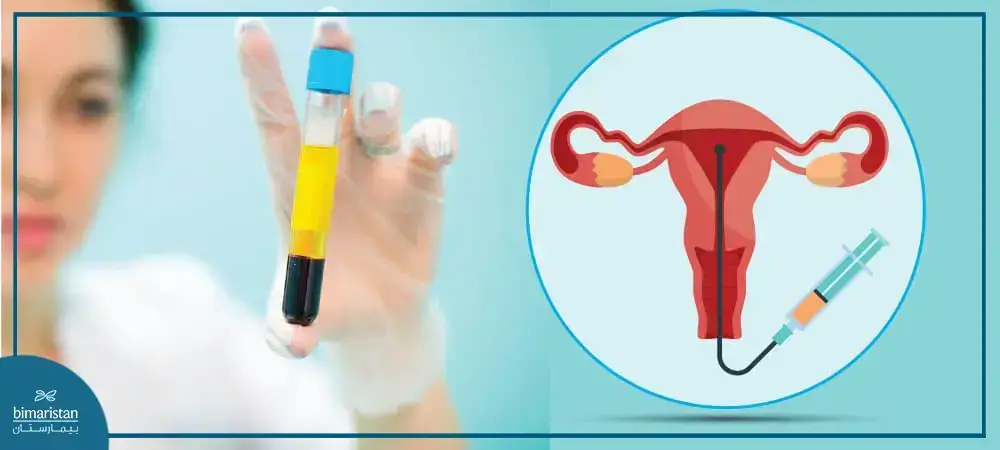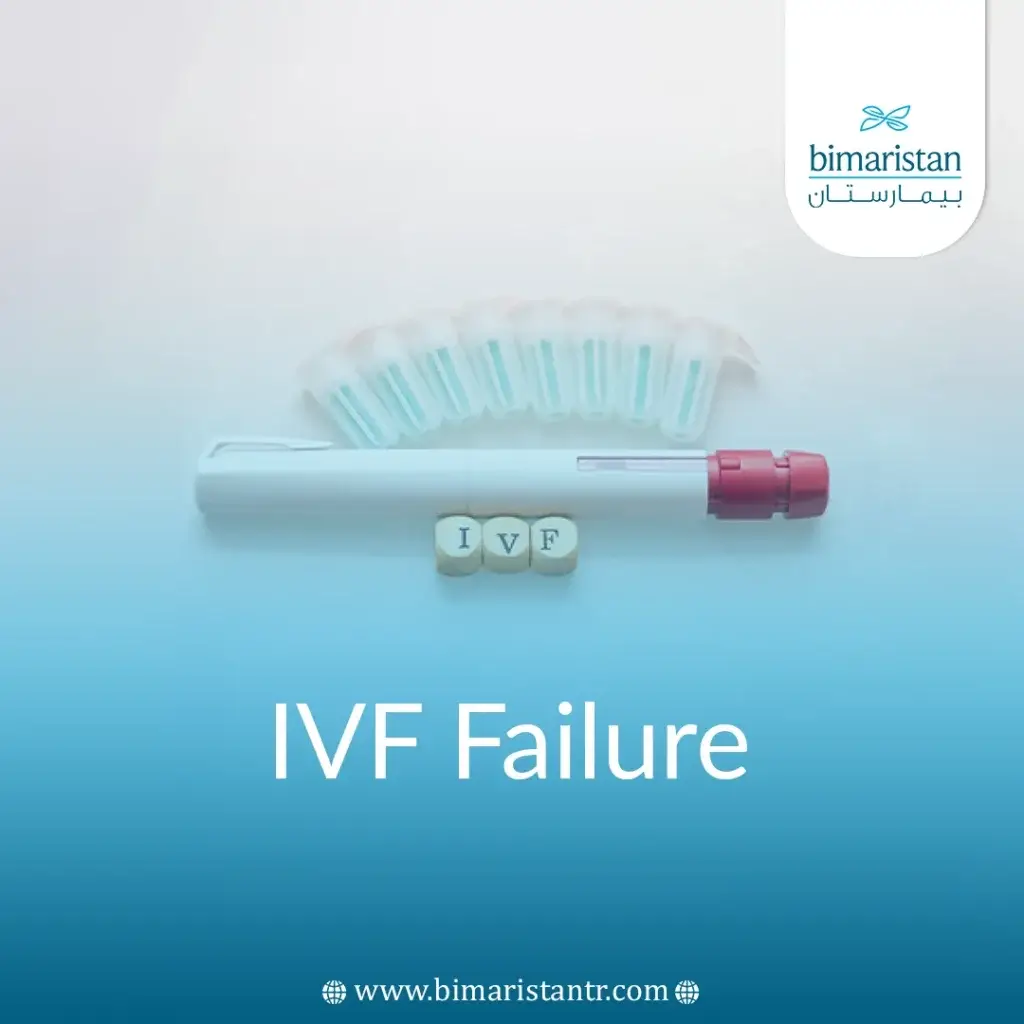Knowing why IVF failure happens can help us discover new ways to have children in the future. Plasma injections to the uterus can increase the chance of pregnancy by at least 20 percent.
The maturity of the endometrium and cervix is the cornerstone of successful IVF, as the fertilized egg must interact with the endometrial membrane to ensure the procedure’s success. In other words, the uterus must be suitable and allow the fertilized egg to nest.
Therefore, scientists have developed a modern technique based on injecting plasma into the uterus to strengthen the uterine lining and increase the chances of IVF success in Turkey. In this article, we will learn about the most important reasons that hinder the success of IVF and the benefits of plasma injections for pregnancy.
IVF failure causes in detail
Knowing why IVF didn’t work the first time could be the key to achieving success the next time around. Here are the top 6 factors that can lead to IVF failure:

Uterine abnormalities
An IVF blastocyst may fail to nest after being transferred to the uterine cavity, possibly due to a congenital uterine abnormality, polyp formation, or infection.
Sometimes the lining of the uterus is too thin for the embryo to implant, and this can be treated with a new technique called Plasma Uterine Injection (PUI).
Fetal quality
The main reason why IVF and IVF techniques are not successful has to do with the nature of the embryo; many times, embryos are not implantable after being transferred to the uterus because they are defective in some way. Even embryos that look good in the lab may have genetic defects that cause them to die instead of growing and nesting.
This means that most of the time there is nothing wrong with the uterus.
Egg age
When it comes to IVF, the age of the eggs is more important than the woman’s age. The quality and quantity of a woman’s eggs begin to decline as she gets older, and this affects her chances of IVF success.
On average, only about 25% of embryos transferred to the uterus result in live births. However, this is highly dependent on the age of a woman’s eggs; women under the age of 35 have an implantation rate of about 45%, while women aged 40-42 have only a 15% chance of successful IVF the first time.
Ovarian response
Sometimes, a woman’s ovaries do not respond to fertility medications well enough to produce multiple eggs, especially if the woman is older than 37 or has higher levels of FSH; she may not produce enough eggs to produce a number of embryos for screening and possible implantation.
Therefore, the level of hormones in the blood should be measured when using ovarian stimulation medications.
The chance of IVF failure increases when a woman’s ovarian reserve of eggs is low, in which case the reproductive endocrinologist will evaluate the ovaries and make changes to fertility medications accordingly.
Fetal chromosomes
All human embryos, whether conceived naturally or developed in an embryology lab, may fail to nest in the uterus when there are chromosomal abnormalities in the embryo, and these abnormalities are the cause of most miscarriages and IVF failures.
Studies have shown that starting in the 30s, as women age, chromosomal abnormalities in eggs begin to increase, and by the mid-40s, 75% of a woman’s eggs will have chromosomal abnormalities. Men’s sperm also develop more chromosomal abnormalities as they age but at a much lower rate than women’s eggs.
If you have had a failed IVF experience, your doctor may recommend a PGS in your next IVF cycle, where some embryonic cells are examined to determine if the correct number of chromosomes are present in the embryo.
Lifestyle
Many fertility clinics ask women to stop smoking at least three months before starting IVF. Women who smoke need twice as many in vitro fertilization (IVF) cycles to get pregnant and are more likely to miscarry than women who don’t smoke.
Women who are overweight or underweight have a lower chance of IVF success. The bottom line is to maintain a healthy weight, and if you are overweight, losing at least 10% of your body weight can make a positive difference in your ability to conceive.
Symptoms of IVF failure
There are some signs that a woman can sense that her IVF treatment has failed:
- No pregnancy symptoms, such as nausea, vomiting, and general fatigue.
- The HCG hormone is not elevated to a certain level; hence, a negative result on the pregnancy test.
- Cycle drops after IVF failure; there is a large amount of bleeding, as in miscarriages.

Tips for those considering IVF
For every woman who aspires to have children through IVF in Turkey, here are a few factors that contribute to the success of IVF:
- Maintain a healthy weight
- Reduce your stress
- Limit your caffeine intake
- Quit smoking and alcohol
- Consider taking supplements
- Make sure you’re getting adequate levels of vitamin D
- Increased patience level
- Collaboration with an excellent doctor and a state-of-the-art embryology lab
- Improve sperm health
Uterine plasma injections in Turkey
If the cervix is damaged due to previous surgery, miscarriage, infection, or adhesions, blood flow to the uterus can be impaired, and even when these issues are treated, the uterus may lose its original function and may never heal again, or it may not be thick enough for fertilization due to an unknown disorder.
Therefore, PRP has been applied to increase the chance of IVF success in Turkey as a type of booster therapy, where platelets are taken from the patient’s blood and injected into the patient’s uterus along with the fertilized egg in the laboratory.

Studies show that the incidence of pregnancy and nesting among women increased significantly, increasing the success rate of IVF, and the thickness of the uterine lining increased after this safe and inexpensive IVF procedure.
In addition, PRP has improved egg quality; recent studies have indicated that the application of PRP improved the level of AMH and FSH pregnancy hormones in the blood, significantly increasing the possibility of pregnancy after IVF application.
It should be noted that this method is completely different from the injection of plasma into the ovaries, which aims to increase the effectiveness and activity of the ovaries in producing new eggs and has replaced IVF in many cases, as some studies predict the reactivation of follicle and egg formation within the ovary after injecting it with platelet-rich plasma.
In conclusion, deciding on the right method of assisted fertilization – especially if the first attempt was unsuccessful – is a highly complex decision, and the financial, physical, and emotional toll of IVF failure can be difficult. Therefore, the decision-maker should be well-informed and knowledgeable about all available options and their future outcomes.
Contact us for a free consultation with a specialist; we will guide you to the best doctors who specialize in performing Assisted Reproductive Technology (ART) and Plasma Uterine Injection (PUI) in Turkey.
Sources:
- The Fertility Foundation
- The Fertility Academy
- Cloudnine Fertility
